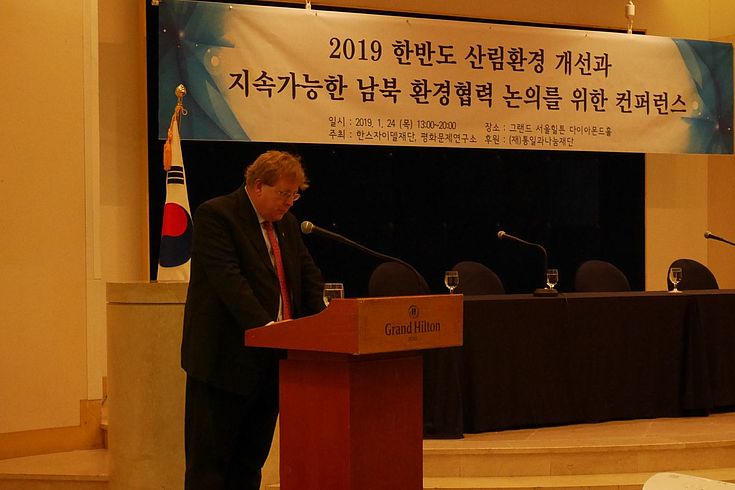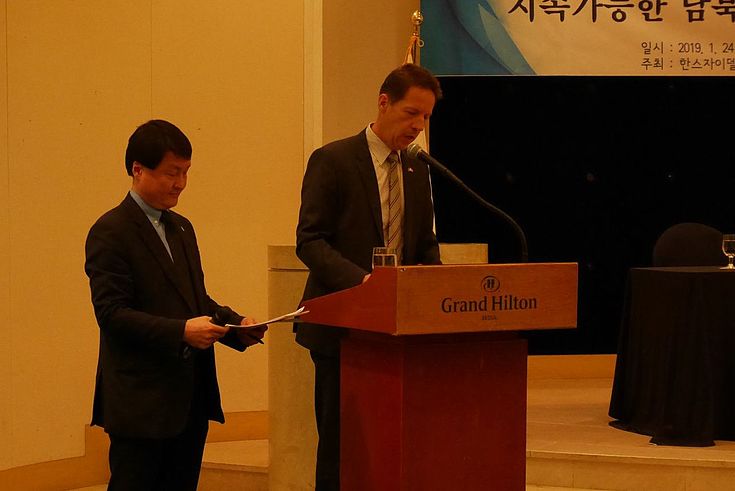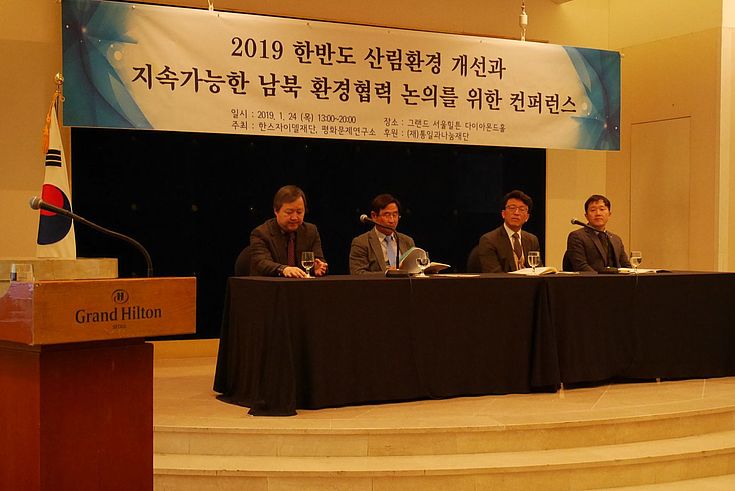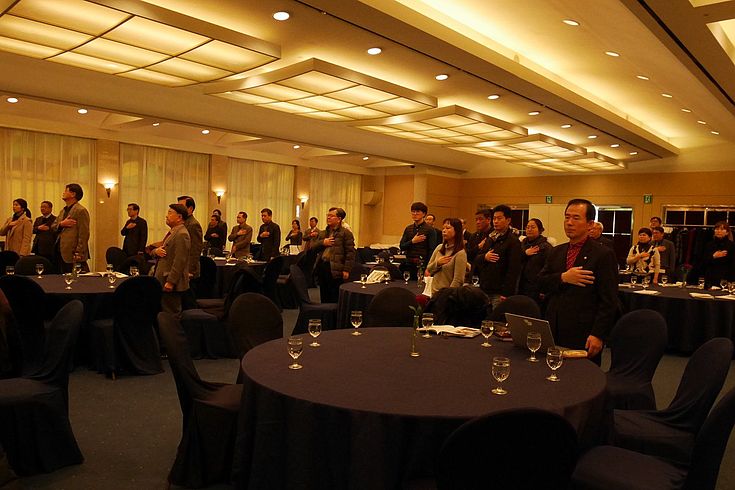Conference
Cooperation instead of Confrontation
Speech by Dr. Seliger
As Weert Boerner, Deputy Head of Mission of the German Embassy in South Korea, in his speech indicated: If there is one problem, that the whole world shares, it is the problem of climate change and the ongoing degradation of nature. The world needs to stand together to overcome this crisis. And as the world, so does the Korean peninsula. The conference on 24th of January with the title: “South-North Environmental Cooperation Conference – Changes on the Korean Peninsula: What is the actual condition of North Korean forests and how to cooperate with each other?”, held by the HSF together with the IPA and UniKorea Foundation focused specifically on the topic of South- North joint environmental projects.
Before the main topics were discussed, the audience was greeted by Bernhard Seliger, Representative of Hanns Seidel Foundation Korea, giving the first welcome speech, followed by Shin Jin, the Director of the Institute for Peace Affairs (IPA), who gave a short welcome speech as well. Further congratulatory speeches were given by Jeon Byeong-Gil (Executive Director of UniKorea Foundaiton) and Weert Boerner, who made the connection between South Korea and Germany as countries with many similarities. Hyun Kyeong-Dae (Advisor of IPA) concluded the session.
Speech by Mr. Boerner
The first speaker of the main panel, Park Kyeong-Seok (Senior Specialist, Institute for Forest Management Strategy), dove right into the issue of Inter-Korean cooperation with his presentation “Inter-Korean Environmental Cooperation based on Border Forests”. North Korea has a serious problem with deforestation, which causes devastating natural catastrophes such as landslides. In the past years the country began to fight this crisis by planting trees and help the forest to regrow. A project in which the South would like to take part in and is willing to support the North. This could an important step towards a better cooperation and a future with an ongoing dialog connecting the South and the North.
Next was the presentation: “Sustainable Natural Ecological Integration of the Korean Peninsula through the Inter-Korean Forest Cooperation” by Woo Jong-Chun (Director of Inter-Korea Forest Cooperation Institute, Kangwon University). He started where Park left off by explaining what the joint goal of the cooperation is and why it is so important to the whole Korean Peninsula. Then he went on to South Korea’s experience with activities for reforestation from the past, an activity where all kinds of people helped together, and which was very successful. He also praised the South Korean efforts to keep educating about the importance of forests. Before talking about the situation of deforestation in North Korea, the professor made a short detour about Korea as a nation, its separation and its possible reunification probably to emphasise that North Korean environmental problems are not exclusively their problems but will soon become South Korea’s problems as well. Lastly, he provided data on already existing joint projects.
Panel Discussion
But it is not just trees that connect North and South Korea. The HSF puts lot of time and efforts protects that insure good conditions for the seven kinds of cranes that can be found on the Korean Peninsula. But the HSF is not alone in this fight. Lee Ki-Sup (International Crane Foundation) gave a speech about the current living conditions for cranes in Korea. In his presentation “Inter-Korean Cooperation Plan for the Preservation of Cranes.”, it became clear that not only South Korea considers cranes as very important birds that need protection. The birds have not only been a symbol of long life for the longest time on the Korean Peninsula, they are also a symbol of reunification, since they can cross the border without regulations.
Since the HSF was not only the host of the conference but has own experiences in all topics discussed during the speeches, it was HSF’s Choi Hyun-Ah, who, under the title of “Wise Use of Wetlands and Sustainable Inter-Korean Environmental Cooperation”, gave an overview of the projects and cooperation of HSF over the past years. Not only the different fields of work were presented, but she also introduced the partners of HSF and the foundation’s efforts to bring both Koreas closer together through dialog and cooperative projects to protect and preserve the environment.
Visitors of this Event
The conference also consisted of two Round Tables, one during the first, and one during the second session. In the first one Yoo Hee-Seok (SK Forest) and Kang Ho-Sang (Seoul National University) gave short speeches and then responded to a few questions and remarks from the audience. In the second one Nam Sangmin (UNESCAP) and Myeon Soo-Jeong (Korea Environment Institute) discussed the topic of environmental cooperation and answered questions. To end the whole event Son Jae-Shik (President of Tongil Hankuk Forum) gave the closing remarks.




